Filter the timeline

September 25, 2015
The Sustainable Development Goals are new global goals that will succeed the Millennium Development Goals in 2016. Food and agriculture is at the heart of the 17 SDGs, beginning with SDG1, End poverty, and SDG2, End hunger.
+ read more

September 17, 2015
The Constitution of the Federal Democratic Republic of Nepal provides for an explicit protection of the right to adequate food through its article 36 which states that: “Each citizen shall have the right to food; (…) the right to food sovereignty as provided for in law.”

May 30, 2015
The conference brought together over 2 000 representatives of civil society, governments, NGOs and international organizations from Bangladesh, India, Nepal, Pakistan, Myanmar and Bhutan and proposed actions to foster sustainable development, Right to Food, food sovereignty.

May 28, 2015
The Latin America and the Caribbean began the challenge of the MDGs with 14.7% of its population affected by hunger: in 2014-16 this prevalence has fallen to 5.5%. The region also met the goal of the WFS, having reduced the total number of undernourished people to 34.3 million.

November 21, 2014
At the end of the Second International Conference on Nutrition, representatives from more than 170 countries, together with around 150 from civil society and nearly 100 from the business community, reaffirmed “the right of everyone to have access to safe, sufficient, and nutritious food, consistent with the right to adequate food and the fundamental right of everyone to be free from hunger”. Together with the Framework for Action, the Rome Declaration on Nutrition provides the common path for actions to eradicate malnutrition and transform food systems for nutritious diets for all.

October 15, 2014
During CFS 41, the Principles for Responsible Investment in Agriculture and Food Systems are adopted, having as objective "to promote responsible investment in agriculture and food systems that contribute to food security and nutrition, thus supporting the progressive realization of the right to adequate food". The Principles refer to the Right to Food Guidelines as a guiding document that the Principles build upon. + read more

October 14, 2014
To celebrate this important year, and with a view to lay down a renewed impetus for further work on the right to food, FAO conducts a series of activities aiming at raising awareness of the Guidelines and the right to food, highlight the achievements and gaps in its implementation and reaffirm the commitment to implement them. Among the activities are: a CFS Plenary session; the adoption of a Decision Box by the CFS; the production of a Synthesis Report; the launch of seven Thematic Studies; a Side-event on Justiciability, and much more. + read more

August 25, 2014
The Declaration aims to strengthen family farming promoting the adoption of public policies, which ensure sustainable and inclusive food production, and the employment of instruments to improve access to natural resources, land, water and seeds.
- Family Farming Declaration Parlatino [spanish]

June 26, 2014
The African Union Assembly with the Malabo declaration commits to ending hunger in Africa by 2025.

June 10, 2014
The Guidelines have for objective to "enhance the contribution of small-scale fisheries to global food security and nutrition and to support the progressive realization of the right to adequate food". Furthermore, the Guidelines urge the objectives to be "achieved through the promotion of a human rights-based approach" while human rights and dignity is the first guiding principle of the Guidelines. + read more
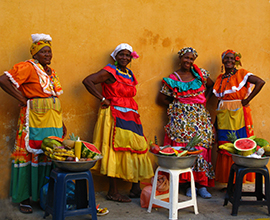
May 12, 2014
Promoting a comprehensive agrarian reform to recognize and respect the knowledge of women and men producers, guarantors of food sovereignty and the incentive to incorporate solidarity economy into public policies are among the objectives of the conference.
- Statement of the Meeting of Women in Latin America and the Caribbean
IV Special Conference of the Alliance for the peoples food sovereignty of Latin America and the Caribbean
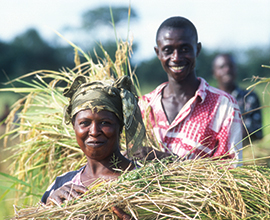
February 24, 2014
Regional commitment to promote cooperation and strengthen policies aiming to eradicate hunger in West Africa.

February 18, 2014
The Constitution of the Arab Republic of Egypt provides for an explicit protection of the right to adequate food through its article 79 which states that "[e]ach citizen has the right to healthy and sufficient food and clean water".

January 28, 2014
The CELAC member States renewed their commitment in eradicating hunger and malnutrition by approving the Declaration of La Havana and the adoption of a Plan of Action on Food Security and Nutrition and Eradication of Hunger and Poverty.

October 19, 2013
This law aims to establish a legal framework to guarantee permanently and as a national priority the Right to Food, Food Security and Nutrition of children and adolescents.
- Framework Law on School Feeding [spanish]

September 6, 2013
The Constitution of the Republic of Fiji provides for an explicit protection of the right to adequate food through its Section 36 which states "the right of every person to be free from hunger, to have adequate food of acceptable quality and to clean and safe water in adequate quantities".

June 26, 2013
On the occasion of the 20th anniversary of the 1993 World Conference on Human Rights, the Vienna+20 CSO Conference is held in Vienna. Among its many provisions, the Declaration condemns the violations of the right to adequate food and notably calls on States to respect, protect and fulfill the right to adequate food and abide by the CFS as the competent multilateral mechanism to deal with governance of food and nutrition security issues. + read more

May 22, 2013
The Constitution of Zimbabwe provides for an explicit protection of the right to adequate food through its article 77 which states that "[e]very person has the right to – (b) sufficient food" and its article 81 which states that "(1) Every child, that is to say every boy and girl under the age of eighteen years, has the right – (f) to ... nutrition".
May 5, 2013
Adopted in 2008, the Optional Protocol to the ICESCR provides the CESCR with additional capacities for the international justiciability of the rights guaranteed in the Covenant. Among other elements, the CESCR is able to: receive and consider communications from individuals or groups, under the jurisdiction of States Parties, claiming to be victims of a violation of any of their economic, social and cultural rights, including the right to adequate food; request a State Party to take such interim measures as may be necessary to avoid possible irreparable damage to the victim or victims of the alleged violations; conduct a confidential inquiry which may include a visit to the country in cases indicating grave or systematic violations of any of the economic, social and cultural rights set forth in the ICESCR. As of March 2016, there are 21 States Parties to the OP-ICESCR.

April 25, 2013
In 2013, countries in the Asia and Pacific region reaffirmed their strong commitment to end hunger and malnutrition by taking up the UN SecretaryGeneral’s Zero Hunger Challenge.

November 30, 2012
Right to Food is explicit recognized in the Article 1, which is mentioned as a national priority.

November 29, 2012
The Resolution on the Right to Food urges States to adopt Food and Nutrition Security as a state policy. It also requests the States to take action on implementing and monitoring the right to food.

November 19, 2012
The right to food is explict recognized in Article 28.

October 29, 2012
Through the establishment of a regional agenda, the CLOC and LVC aim to promote economic relations of equality, gender equality, social justice; preservation of land, water, seeds and other natural resources; food sovereignty; and sustainable agricultural production.
- website [spanish]

October 20, 2012
The Global Strategic Framework for Food Security and Nutrition is a single, living document to improve coordination and guide synchronized action by a wide range of stakeholders. Among its numerous linkages with the right to adequate food, it notably refers to the Right to Food Guidelines as a part of its foundations and overarching frameworks and calls on States to implement them. Moreover, it reiterates the obligations of states towards the realization of the right to adequate food and recommends the adoption of a human rights-based approach for achieving food security and nutrition objectives. + read more

June 22, 2012
Twenty years after the landmark 1992 Earth Summit in Rio, numerous pledges are made at the Rio+20 Conference where world leaders "reaffirm [their] commitments regarding the right of everyone to have access to safe, sufficient and nutritious food, consistent with the right to adequate food and the fundamental right of everyone to be free from hunger". Moreover, it was in the context of this summit that the UN Secretary-General launched the Zero Hunger Challenge which notably aim to ensure that every man, woman and child enjoy its right to adequate food. + read more

June 5, 2012
A compromise to promote agriculture development, strengthening food security in national, regional, and international development policies.

June 1, 2012
The Platform is an articulation between the organizations of family agriculture and smallholders of the Portuguese speaking countries, aiming to influence the political agenda of family agriculture, food sovereignty and human right to food.
- CPLP Peasants Platform [portuguese]
- Relatório síntese da reunião de trabalho da PC-CPLP – Maputo, 19-07-2012 [portuguese]

May 11, 2012
While the VGGT "built on and supports the [Right to Food Guidelines]", their main purpose is "to serve as a reference and to provide guidance to improve the governance of tenure of land, fisheries and forests with the overarching goal of achieving food security for all and to support the progressive realization of the right to adequate food". + read more

January 19, 2012
It states that food security is a basic human right achieved through availability, accessibility, use and temporal stability of healthy, sufficient, adequate and nutritious food; it seeks recommendations on how to tackle food waste.

December 2, 2011
In 2011 the Member States of the CELAC established a regional dialogue mechanism and, with the adoption of the Caracas Action Plan 2012, have committed to cooperate for social development and for the eradication of hunger.
November 17, 2011
Explicitly protects the right to food; "[…] the governments and IGOs undertake to: [...] Ensure the right to food in accordance with national priorities, particularly through new laws and action plans as well as financing."

October 15, 2011
The human right to food is the paramount approach in the new CARICOM’s Regional Food and Nutrition Security Action Plan. The goal is to guarantee long-term food and nutrition security for all inhabitants of the CARICOM countries.

August 17, 2011
The Constitution of the United Mexican States provides for an explicit protection of the right to adequate food through its article 4 which states that "[a]ll persons have the right to nutritious food, sufficient and of quality".

July 1, 2011
The members of the CPLP approved a Strategy of Food and Nutrition Security with a perspective of progressive realization of the Right to Adequate Food. The CPLP Council of the Ministers reaffirms its commitment to cooperate to eradicate hunger in 2012.
- website [portuguese]
- Estatuto (Statute) [portuguese]
- Estratégia de Segurança Alimentar e Nutricional ESAN-CPLP (parte I) – (parte II) [portuguese]

November 25, 2010
The Constitution of the Republic of Niger provides for an explicit protection of the right to adequate food through its article 12 which states that "[e]ach one has the right ... to a healthy and sufficient food supply ... The State assures to each one the satisfaction of the essential needs and services as well as a full development".

August 27, 2010
The Constitution of Kenya provides for an explicit protection of the right to adequate food through its article 43 which states that "(1) Every person has the right: (c) to be free from hunger, and to have adequate food of acceptable quality".

February 3, 2010
The Constitution of the Federative Republic of Brazil provides for an explicit protection of the right to adequate food through its article 6 which states that "are social rights … food … under this Constitution".

January 26, 2010
The Constitution of the Dominican Republic provides for an explicit protection of the right to adequate food of persons of the third age through its article 57 which states that "[t]he State guarantees the services of integral social security and food subsidies in case of indigence".

November 18, 2009
At the World Summit on Food Security, the Rome Principles for Sustainable Global Food Secuirty are adopted. While the Declaration of the World Summit on Food Security reaffirms the right of everyone to adequate food and urges the adoption of steps to progressively realize the right to adequate food of all, the Rome Principles lay out five principles among which the third one calling for a twin track approach which includes the right to food and calls for the implementation of the Right to Food Guidelines. + read more

October 17, 2009
With the reform of the Committee on World Food Security, the CFS strives to become "the foremost inclusive international and intergovernmental platform for a broad range of committed stakeholders to work together in a coordinated manner and in support of country-led processes towards the elimination of hunger and ensuring food security and nutrition for all human beings" while putting forth a vision where it "strive[s] for a world free from hunger where countries implement the voluntary guidelines for the progressive realization of the right to adequate food in the context of national food security". + read more
September 3, 2009
It is the result of a cooperation process between the Congresses and the Legislative Assemblies' Parlamenterians of the SICA Member States, the Central American and the Andean Parliaments, and of Venezuela, which started at the Parliamentary Forum Meeting on the Right to Food with the purpose of eradicating hunger and malnutrition in their countries.
- Conferencia Interparlamentaria por el Derecho a la Seguridad Alimentaria
Reporte Final [spanish]

February 7, 2009
The Constitution of the Plurinational State of Bolivia provides for an explicit protection of the right to adequate food through its article 16 which states that"I. Every person has the right to water and food" and "II. The State has the obligation to guarantee food security, by means of healthy, adequate and sufficient food for the entire population".

December 16, 2008
A commitment to work together against inequality, through cooperation and exchange of experiences, in order to strengthen, inter alia, the national processes and the regional integration to eradicate poverty and hunger.
- Salvador de Bahía Declaration [spanish]
October 1, 2008
Taking place from the 1 to 3 October 2008 in Rome, it provides the first global opportunity to share lessons learned from national experiences on the implementation of the right to food. This video report captures the dynamics, the main messages and the positive outcomes of the Forum.

September 28, 2008
The Constitution of Ecuador provides for an explicit protection of the right to adequate food mainly through its article 13 which states that "[p]ersons and community groups have the right to safe and permanent access to healthy, sufficient and nutritional food, preferably produced locally and in keeping with their various identities and cultural traditions".

August 7, 2008
The Constitution of Maldives provides for an explicit protection of the right to adequate food through its article 23 which states that "Every citizen [has] the following rights … (a) adequate and nutritious food and clean water".

August 5, 2008
The AIFS Framework is supported by a Strategic Plan
of Action on Food Security which aims to ensure long-term food security and to improve farmers’ livelihoods.
As part of the ASEAN Food Security Reserve Agreement, the ASEAN Emergency Rice Reserve was established in 2011.
August 5, 2008
The AIFS Framework is supported by a Strategic Plan of Action on Food Security which aims to ensure long-term food security and to improve farmers’ livelihoods. As part of the ASEAN Food Security Reserve Agreement, the ASEAN Emergency Rice Reserve was established in 2011.
May 12, 2008
The dramatic rise of global food prices and the crisis it triggered led to the establishment of the High-Level Task Force (HLTF) on the Global Food Security Crisis. Under the leadership of the UN Secretary-General, the Task Force brings together the Heads of the UN specialized agencies, funds and programmes, as well as relevant parts of the UN Secretariat, the World Bank, the International Monetary Fund, the Organization for Economic Cooperation and Development and the World Trade Organization. With the primary aim of promoting a comprehensive and unified response to the challenge of achieving global food security, the HLTF produces the Comprehensive Framework for Action in July 2008 setting out a twin-track approach consisting of activities related to meeting the immediate needs and activities related to the longer-term structural needs, thus enabling people to realize their right to food. Moreover, the particular importance of the right to food in the global food security architecture was highlighted by the UN Secretary-General’s appeal to add the right to food as a third-track – as a basis for analysis, action and accountability.

May 7, 2008
The Managua Declaration promotes productive organization and associativity, supports small, medium and large agricultural producers, including women equal rights, to ensure food security and food sovereignty.
- Managua Declaration [spanish]

May 3, 2008
Adopted by the UN General Assembly in 2006, the Convention on the Rights of Persons with Disabilities provides for the right to adequate food in its article 28 "the right of persons with disabilities to an adequate standard of living for themselves and their families, including adequate food". As of March 2016, there are 162 States Parties to CRPD.

April 23, 2008
This ALBA agreement aims at implementing programs and development plans in food safety and sovereignty, through technical and financial mechanisms. The guiding principles are equality, complementarity, mutual respect of the sovereignty and reciprocal advantages.
I Extraordinary Summit - Caracas, Venezuela - April 23, 2008
October 16, 2007
The choice of the Right to Food as the theme for 2007 World Food Day and TeleFood demonstrates increasing recognition by the international community of the important role of human rights in eradicating hunger and poverty, and hastening and deepening the sustainable development process.

April 4, 2007
The Food Bank shall act as a regional food security reserve for the SAARC Member Countries during food shortages and emergencies; provide regional support to national food security efforts; foster regional integration and collective action.

March 29, 2006
The Inter-American Court of Human Rights recalled its interpretation of the right to life, after receiving a report from the community about the deteriorating health and their lack of access to adequate food.

February 18, 2006
The Constitution of Democratic Republic of the Congo provides for an explicit protection of the right to adequate food through its article 47 which states that "the right to health and to food security is guaranteed".

September 13, 2005
Hunger-Free Latin America and the Caribbean Initiative is a commitment of the countries of the region to eradicate hunger within one generation.

January 19, 2005
The creation of this policy was the outcome of agriculture’s assessments across the region, its potential development, strengths and weaknesses of agriculture, and of agricultural and food security issues and challenges.

November 27, 2004
Adopted by the 127th Session of the FAO Council, the objective of the Voluntary Guidelines to support the progressive realization of the right to adequate food in the context of the national food security (Right to Food Guidelines) is to provide practical guidance to States in their implementation of the progressive realization of the right to adequate food in the context of national food security, in order to achieve the goals of the World Food Summit Plan of Action. + read more

June 25, 2004
In the regional integration process, REAF is one of the most dynamic meeting places for small farmers, rural organizations and institutions, aiming to create a framework of regional public policies on family farming.
- website
- REAF MERCOSUR YouTube channel [spanish]

January 1, 2004
In Article 3, the States Parties agree to ensure adequate standard of living, including adequate shelter, food and clothing.

July 11, 2003
Article 15: "Right to Food Security
a) provide women with access to clean drinking water, sources of domestic fuel, land, and the means of producing nutritious food;
b) establish adequate systems of supply and storage to ensure food security."

July 10, 2003
The CAADP aims to catalyse transformation of Africa’s agricultural systems and stimulate increased and sustainable agriculture performance in member states for effective contribution to achieving economic growth and inclusive development.

June 10, 2002
At the World Food Summit: five years later, States reaffirm "the right of everyone to have access to safe and nutritious food" and the "importance of strengthening the respect of all human rights and fundamental freedoms". Moreover, States invite "the FAO Council to establish [...] an Intergovernmental Working Group [...] to elaborate, in a period of two years, a set of voluntary guidelines to support Member States' efforts to achieve the progressive realisation of the right to adequate food in the context of national food security". + read more
November 1, 2001
The Agroecological Forum (Jornada de Agroecologia) is a political coalition launched in 2001, which was the result of wide and participatory dialogues between Social Movements from the rural area and NGOs active in Paraná.
- article by José Maria Tardin [only in portuguese]
- website [only in portuguese]

October 27, 2001
The African Commission, finds the Federal Republic of Nigeria in violation of Articles 2, 4, 14, 16, 18(1), 21 and 24 of the African Charter and appeals to the government of the Federal Republic of Nigeria to ensure protection of the environment, health and livelihood of the people of Ogoni.

September 8, 2000
At the Millenium Summit, adoption by the UN General Assembly of the UN Millenium Declaration committing their nations to a new global partnership to reduce extreme poverty and setting out a series of time-bound targets - with a deadline of 2015 - that have become known as the Millennium Development Goal. The MDG 1 aims to eradicate extreme poverty and hunger with its target 1C striving to "[h]alve, between 1990 and 2015, the proportion of people who suffer from hunger". + read more

July 1, 2000
The Network of Farmers and Agricultural Producer Organizations comprises organizations and “dialogue boards” representing about 45 million small-scale producers, cattle farmers and fishers from 10 West African countries.
- website [french]

April 17, 2000
Established by Resolution 2000/10 of the UN Commission on Human Rights, the Special Rapporteur on the Right to Food is entrusted with a mandate to promote the realization of the right to food and the adoption of measures at national, regional and international levels, most notably by working in close cooperation with all states, intergovernmental and non-governmental organizations, the CESCR, and other relevant stakeholders.

September 29, 1999
The Inter-American Commission on Human Rights endoursed, for the first time, the conclusion of an amicable settlement to protect the right to property and the right to food of indigenous communities.
- Report No 90/99 case 11.713 [spanish]

May 12, 1999
The Committee on Economic, Social and Cultural Rights (CESCR) produces General Comment 12, which clarifies the content of Article 11 of the ICESCR in relation with the right to adequate food and establishes that: "[t]he right to adequate food is realized when every man, woman and child, alone or in community with others, has the physical and economic access at all times to adequate food or means for its procurement."
![Report Nº 40/04 Case 12.053 merits Maya indigenous communities of the Toledo District Belize [12 October 2004]](/fileadmin/user_upload/Rtf_timeline/images/R8_5943032751_fc11a6ddbf_o.jpg)
August 7, 1998
The Commission pointed out that Belize was responsible for Maya People’s rights violations under the American Declaration of the Rights and Duties of Man and recommended to provide an effective remedy, which includes recognizing Maya People’s communal property right to the lands.

December 18, 1996
The Constitution of the Republic of South Africa provides for an explicit protection of the right to adequate food through its article 27 which states that "(1) Everyone has the right to have access to- (b) sufficient food and water", its article 28 which states that "(1) Every child has the right- (c) to basic nutrition" and its article 35 which states that "(2) Everyone who is detained, including every sentenced prisoner, has the right- (e) to conditions of detention that are consistent with human dignity, including at least exercise and the provision, at state expense, of adequate ... nutrition".

November 17, 1996
At the end of the World Food Summit, countries "reaffirm the right of everyone to have access to safe and nutritious food, consistent with the right to adequate food and the fundamental right of everyone to be free from hunger". Moreover, they pledge their actions and support to implement the World Food Summit Plan of Action which, among other things, states that "the progressive realization of the right to adequate food for all [... is] also indispensable to our goal of achieving sustainable food security for all". In addition, Objective 7.4 calls on OHCHR to "define the rights related to food in Article 11 of the [ICESCR] and to propose ways to implement and realize these rights".

June 28, 1996
The Constitution of Ukraine provides for an explicit protection of the right to adequate food through its article 48 which states that "[e]veryone shall have the right to a standard of living sufficient for themselves and their families including adequate nutrition".

May 18, 1995
The Constitution of the Republic of Malawi provides for an explicit protection of the right to adequate food through its article 30 which states that "[t]he State shall take all necessary measures for the realization of the right to development. Such measures shall include, amongst other things, equality of opportunity for all in their access to basic resources ... food".

March 22, 1995
This case law recognized for the first time that the deprivation of light, insufficiency of food and lack of access to medicine or medical care could constitute a violation of Article 5 of the ACHPR.

July 29, 1994
The Constitution of the Republic of Moldova provides for an explicit protection of the right to adequate food through its article 47 which states that "[t]he State is obliged to take action aimed at ensuring that every person has a decent standard of living, whereby good health and welfare, based on available food, clothing, shelter, medical care, and services are secured for that person and his/her family".

March 15, 1994
The Constitution of the Republic of Belarus provides for an explicit protection of the right to adequate food through its article 21 which states that "[e]veryone has the right to a decent standard of living, including appropriate food" and that "[t]he State shall guarantee the rights and freedoms of citizens of Belarus that are enshrined in the Constitution and laws, and specified by the State's international obligations".

June 20, 1992
The Constitution of the Republic of Paraguay provides for an explicit protection of the right to adequate food of children through its article 54 which states that "the family, the society and the State have the duty to guarantee to the child a harmonious and full development, as well as the full exercise of his rights, protecting him against abandonment, undernourishment" as well as persons of the third age through its article 57 which states that "[t]he family, the society, and the public powers will promote their well-being through social services that see to [fulfilling] their needs for food".

July 4, 1991
The Constitution of Colombia provides for an explicit protection of the right to adequate food of children through its article 44 which states that "the following are basic rights of children ... a balanced diet".

September 2, 1990
Adopted in 1989, it includes specific provisions on the right to adequate food of children in its article 27 which recognizes "the right of every child to a standard of living adequate for the child's physical, mental, spiritual, moral and social development", including in case of need through the provision of "material assistance and support programmes, particularly with regard to nutrition". The Convention has gathered almost universal ratification with 196 States Parties as of March 2016.

July 11, 1990
Article 14: "Every child shall have the right to enjoy the best attainable state of physical,
mental and spiritual health. States Parties to the present Charter shall undertake to pursue the full
implementation of this right and in particular shall take measures: [...]
to ensure the provision of adequate nutrition and safe drinking water;"
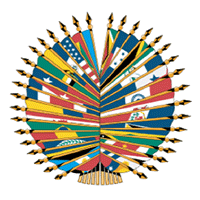
November 17, 1988
Article 12: "Everyone has the right to adequate nutrition which guarantees the possibility of enjoying the highest level of physical, emotional and intellectual development."

September 30, 1987
The Constitution of the Republic of Suriname provides for an explicit protection of the right to adequate food through its article 24 which states that "[t]he state shall take care of the creation of conditions in which an optimal satisfaction of the basic needs for ... food ... is obtained".

March 29, 1987
The Constitution of Haiti provides for an explicit protection of the right to adequate food through its article 22 which states that "[t]he State recognizes the right of every citizen to decent housing, education, food and social security".

February 2, 1987
The Constitution of the Republic of the Philippines provides for an explicit protection of the right to adequate food of children through its Article XV Section 3 which states that the State shall defend "[t]he right of children to assistance, including proper care and nutrition".
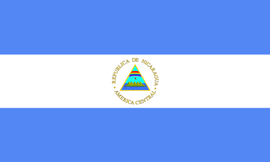
January 9, 1987
The Constitution of the Republic of Nicaragua provides for an explicit protection of the right to adequate food through its article 63 which states that "[i]t is the right of Nicaraguans to be protected against hunger. The State shall promote programs, which ensure adequate availability of food and its equitable distribution".

January 14, 1986
The Constitution of the Republic of Guatemala provides for an explicit protection of the right to adequate food of minors and the elderly through its article 51 which states that "[t]he State … will guarantee to them their right to food".

May 28, 1985
Established under ECOSOC Resolution 1985/17 of 28 May 1985 to carry out the monitoring functions assigned to the United Nations Economic and Social Council (ECOSOC) in Part IV of the Covenant, it is the body of independent experts that monitors implementation of the ICESCR by its States parties. Moreover, the Committee publishes its interpretation of the provisions of the Covenant, known as General Comments.

March 5, 1985
The Inter-American Commission on Human Rights found that the right to health and well-being (the right to food is included in the same article) recognized in article XI had been violated.
To know more:
The Right to Food and Access to Justice (FAO, 2009)

January 20, 1982
The Constitution of Honduras provides for an explicit protection of the right to adequate food of children and mothers through its article 123 which states that "[e]very child shall have the right to grow and develop in good health, for whom special care shall be given during the prenatal period, as much for the child as for the mother, both being entitled to food".

September 3, 1981
Adopted by the UN General Assembly in 1979, the Convention on the Elimination of All Forms of Discrimination against Women includes several provisions pertinent for the realization of the right to adequate food of women, among which articles 12 and 14. As of March 2016, there are 189 States Parties to CEDAW.
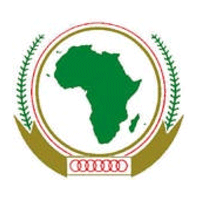
June 27, 1981
The ACHPR does not explicitly recognize the right to food, but it is contained within various interdependent rights such as the right of all people to health and to a satisfactory and global environment that promotes development.

February 20, 1980
The Constitution of the Co-operative Republic of Guyana provides for an explicit protection of the right to adequate food through its article 40 which states that "[e]very person in Guyana is entitled to the basic right to a happy, creative and productive life, free from hunger, disease, ignorance and want".

February 24, 1976
The Constitution of Cuba provides for an explicit protection of the right to adequate food of children through its article 9 which states that "[t]he State … guarantees … that there is no child without education, food".

January 3, 1976
The work on the International Covenant on Economic, Social and Cultural Rights (ICESCR) started in 1951 and the Covenant was adopted by the UN General Assembly in 1966. Article 11 of the Covenant “recognizes the right of everyone to an adequate standard of living [...] including adequate food” as well as “the fundamental right of everyone to be free from hunger”. As of March 2016, there are 164 States Parties to the ICESCR.

November 16, 1974
States recognizes that it is a common purpose of all nations to eliminate hunger and malnutrition. The Conference proclaims that “[e]very man, woman and child has the inalienable right to be free from hunger and malnutrition in order to develop fully and maintain their physical and mental faculties”. The Declaration was later endorsed by the UN General Assembly resolution 3348 (XXIX) of 17 December 1974.

October 11, 1972
The Constitution of the Republic of Panama provides for an explicit protection of the right to adequate food of minors, the elderly and the sick through its article 56 which states that "[t]he State shall protect the physical, mental and moral health of minors and shall guarantee their rights to food ... In an equal manner, the elderly and the sick who are destitute shall have the right to this protection".
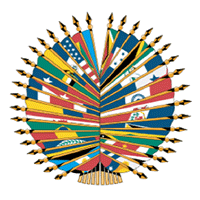
November 22, 1969
Art. 26 recognizes the economic, social and cultural rights and refers to the OAS Charter, which establishes the basic objectives of integral development that are relevant to the implementation of the right to food in art. 34 par. b, d, f, g, j.

November 8, 1949
The Constitution of the Republic of Costa Rica provides for an explicit protection of the right to adequate food of indigent pupils through its article 82 which states that "[t]he State shall provide food and clothing for indigent pupils".

December 10, 1948
Hailed as a common standard of achievement for all peoples and all nations, it is the first international recognition that all human beings are born free and equal in dignity and rights and the exclamation of some fundamental human rights. Article 25 states that: “everyone has the right to a standard of living adequate for the health and well-being of himself and his family, including food...”. + read more
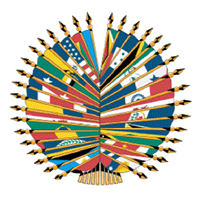
April 1, 1948
Article XI: "Every person has the right to the preservation of his health through sanitary and social measures relating to food, clothing, housing and medical care […]”.
